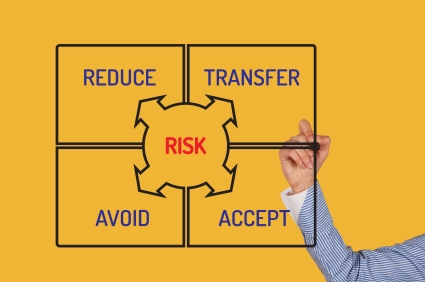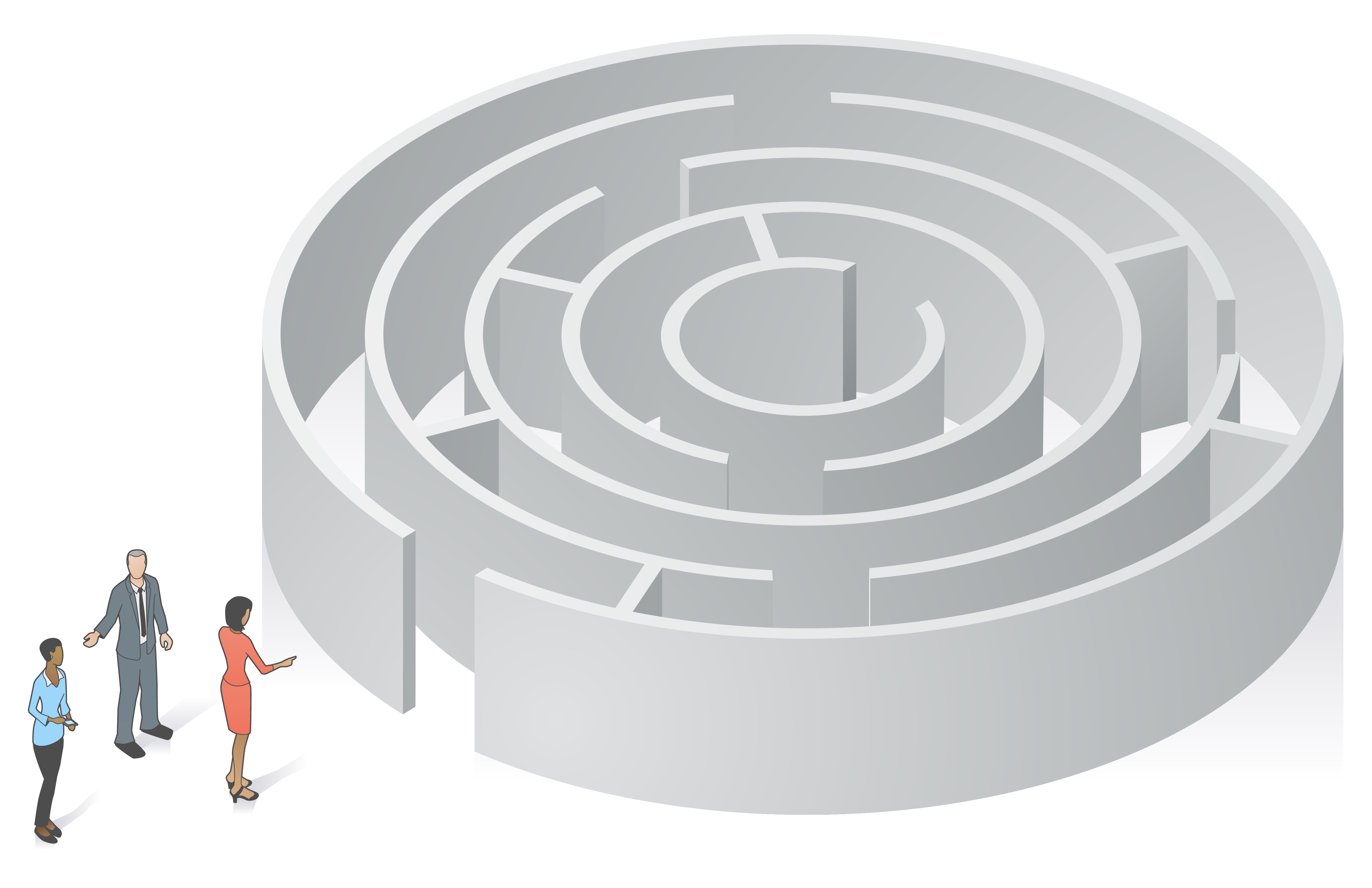I’ve decided to end the year with a guest blog from my friend and fellow Vistage Chair, Larry Cassidy. We’ve been having a discussion amongst us Vistage Chairs about the recent tragedies, hate crimes and terrorism and the related impact some members have begun to see in their companies. For me, Larry’s commentary expressed the challenge we face as a nation and caused me to pause. With that in mind, I am making it visible here, offering you some food for thought as you begin the holiday season.
First, a couple of stories and then Larry’s post.
One member reported an angry customer screaming in the lobby of her financial services company that the customer service rep he dealt with (second generation Pakistani American) should go back to her home country.
My first newsletter was sent on June 27, 2011, some 230 newsletters ago. And for those 4½ years I have stepped carefully around politics. Today I will take edge up to that tricky topic, not so much traditional politics, but rather on who we are, and what price we 322-million folks are willing to pay to be that.
We have undergone many serious gut-shots in the past several years, Paris and San Bernardino being the latest. As I ponder these tragedies, and before releasing this newsletter into the wild, my thoughts go to three big ideas:
- becoming the best version of ourselves,
- the hard price we are (or are not) willing to pay to get and stay there,
- our leadership as a part of all that.
There are many pieces to that, and we each have our own ideas. I will share mine below. You may disagree. But I do so because it is a conversation we cannot avoid, and all voices are required.
~~~~~~~~~~~~~~~~~~~~~~~~~~~~~~
“Give me your tired, your poor,
Your huddled masses yearning to breathe free,
The wretched refuse of your teeming shore.
Send these, the homeless, tempest-tossed to me,
I lift my lamp beside the golden door.”
The Statue of Liberty, dedicated 10/28/1886
Terrorism is a stark and frightening example of what others can do to us. Paris. San Bernardino. Too much, too often. And leadership is what we choose to do about it, and how we go about doing it.
Once again, we confront events with which we have not contended (remember: Pearl Harbor, the Cuban Missile Crisis, 9/11), and while such moments spawn anger and paranoia, they also summon our better angels. Which is one more good reason we would rather live here than anywhere else in the world, our flaws notwithstanding.
As I now savor almost-eight decades, I wonder if our fears might extinguish the Statue of Liberty’s torch, our shining beacon of freedom. And I question whether my opportunity to be born here, to live here, and to experience this thing called America, could have happened had such fear and paranoia won the early days of our history.
A bit dramatic? Go back a century-or-more, and we Irish were potato-heads, lazy scum. Italians were looked on as not much better. Jews? Forget it. African Americans, which was hardly what they were called? Slaves at best. Nor does that count Japanese-Americans or German-Americans in WWII. Pretty lucky for we shoddy Irish (and me) that we got past much of that.
Yes, we each have a right to feel, to fear, to embrace and to be safe. But before we pounce, look around. Soak it in. The ethnic, religious and nationalistic mess we behold is what has combined to make us great. It is our grand experiment, a palate on which each color and belief and ancestry is a part. It is us. So, what will it be ten, or fifty, or a hundred years from now?
Once again, we are in the process of deciding. In every business, classroom, sanctuary, gathering and discussion. And we are the leaders: the parents, coaches, elders, teachers, business executives. Make no mistake, we are deciding, we are leading and we are teaching.
- So what will we do, and how will we go about doing it?
- Which parts of what made this country great will we keep, and which will we discard?
- Will we mirror or will we reject what those who threaten us espouse?
- And once we decide, once we move on, will we have found our way to safety while continuing to lift our lamp beside the golden door?
This is a big deal. And we are all right in the middle of it.
Larry Cassidy
P.S. This is the last post this year, see you back here in January.
Are Your Expectations Too High Or Too Low?
How do you know?
- Sometimes we set our sights too low and don’t achieve as much as we can.
- Sometimes we expect too much from ourselves and constantly feel as though we don’t measure up.
- Sometimes we expect too much from our team or our key vendors and they feel as though they can’t please us.
- Sometimes we expect too little or don’t ask for what we really want from our employees or our vendors and we end up taking on too much ourselves instead.
How do we know which it is? For me the litmus test is this…
- How often are our expectations of ourselves or others met?
- What does our gut say about that percentage? Too high? Too low?
- What then is the next step to get our expectations in line with what is possible?
Right People At The Right Time…
Most of the clients I have worked with over the years founded their businesses; same is true for the members of my Vistage CEO group. These folks often join Vistage because they want to grow and build a professionally managed business. They are grateful and loyal to the folks that helped them get started. And, sometimes these two objectives are at odds.
The CEO knows in his head that change won’t happen without changing some key players. (After all, if the folks that are there were going to get you where you wanted to be, you would be there already). And, in his heart he is torn.
As humans, when confronted with substantial change, particularly within a structure, the mind tends to go immediately to “what am I going to lose?” Often there is much to gain, occasionally something to lose, but this is our mind at work, much less than the process at work. The question becomes, how do we overcome these fears and realize that forward progress only comes with transformation?
Here are some questions to consider, as you think about your own evolution:
- Owner: Am I in the right role in the organization? Am I best suited to be the investor, the operator, or both?
- Owner: The age old question, are the right people in the right seats on the bus to get to the destination I want?
- Owner or Key Executive: Am I spending most of my time do the things that are in my genius?
- Owner or Key Executive: Am I performing at the same level (or higher) today as I was when I began? If not, what change could I make so that I am?
- Owner or Key Executive: Am I making decisions out of loyalty rather than what is best for the organization? If so, what is the cost? And what really is loyalty?… Are we doing someone (or ourselves) a favor keeping them (staying) in a role that we are not excellent at? How might the organization (or I) benefit by moving on if I am not performing?
What Our Vistage Members Want You to Know
As Time Goes By….
Lots of talk these days about the increasing role the millennials are playing in the workplace. At the same time, many boomers remain in the workforce. The result: younger people managing folks older than them.
Millennials tell me they often feel uncomfortable in these situations. Today, I was talking with a young man taking over a family business. He shared with me that while he is excited about the opportunity, he is wondering why none of the “seasoned guys”, who have been with his father a long time, wanted to buy the business from his Dad. He is also wondering how they feel about him being their boss.
While the dynamics of a family business are different, I hear the same story from millennials in all types of organizations. And, I remember when I too was in a similar situation. I was 24 and became the manager of 3 divisions of a large company. Two of the direct managers were older than me and one was my age. Turned out the most challenging one, as you may have guessed, was with Nevin, the one my age. He wanted the job I had.
Here is what I learned from this experience. It is up to both the manager and the now junior employee to make it work. The best situation for me was with Rita, a graceful woman 30 years older than me. Rita didn’t want my job; she loved the job she had. And, while I was her boss, I learned a ton from her. She was gracious in sharing her wisdom and I credit her with helping me become a better leader. Nevin was a bigger challenge; we had some rough waters for some time. What we learned was there was a place for both of us and we could learn from each other. The result, we remained friends for many years to come. When I moved on, he took over the role I had, and years later, I introduced him to a friend who helped him launch a writing and speaking career he had dreamed of.
If this resonates with you, whether you are the boss in this situation or the older or peer subordinate, what are you doing to make the extra effort to make this work for both of you?
How Do You Keep Your Mojo?
Sometimes the demands of one part of our life, work or family, consume us. Sometimes because of a crisis, sometimes because of a spike in workload or children’s sports or…, sometimes just because we become consumed.
These days, mobile devices link us 24/7 to the office, our bosses, our employees and coworkers. We are, as I heard it said recently, living in time poverty. It may be necessary, now more than ever, to pause, regroup and allow ourselves to do something counterintuitive; listen to music, go sailing, jogging, practice yoga, make pottery or simply go for a walk.
Why counterintuitive? Because our responsible self says, stay with it, do the work, finish the project, take care of the sick loved one, etc. We tell ourselves its selfish to do something for ourselves “at a time like this”.
If we think of our lives as a three legged stool….when one leg is gone, it won’t balance and falls over. We can’t take the pressures of work and family and go back and forth between them alone….that’s where the third leg, a completely different activity that is our individual interest alone, comes in.
At the height of World War 2 when the pressures were immense, President Roosevelt would escape to his stamp collection for an hour or so, doing something completely different. General George Marshall would ride horseback many mornings to relieve the pressures of his job of building and leading an Army of 8 million men and women.
Think about it—
- What is your third stool leg to balance your life?
- How often are you trying to balance on only 2 legs?
- How might you feel if all three legs were grounded on most days?
The Meaning Of Labor Day
When the first nationally recognized Labor Day was celebrated in 1894, the day consisted of a street parade sending up a message of “the strength and esprit de corps of the trade and labor organizations” (in the words of the AFL). We have come a long way since then. Today most employers focus on offering opportunities and benefits to attract and retain talent; as a result, the need for unions has diminished and few remain.
Yet we still celebrate the day as a national holiday. Perhaps it is simply tradition, or the acknowledgment of the end of summer. Or a reminder to celebrate how far we have come as a nation of leaders and followers, where two-way communication has become much more the norm than work place “negotiations”.
So, as you enjoy your family barbecues, or however you celebrate the day, I encourage you to pause and ask yourself:
- As a leader, what can I do tomorrow to let each member of my team know they are valued and are essential to our success?
- As a follower, what I can do tomorrow to let my boss know what else I can do to add value to the success of our company?

Managing Business Assets W/ Portfolio Management Risk Practices
Businesses are assets, right? What might happen if we followed the risk management practices of portfolio management in running them?
The “portfolio managers” of our business are our leadership team, our key executives. Business owners have a risk tolerance that leads them to be more or less involved in activities in their businesses.
What I observe as a Vistage chair and leadership coach is sometimes executives frequently feel either micromanaged or adrift and unclear of expectations.
When the business owners abdicate instead of delegate, only to jump back in when things are not going as they expected (but didn’t verbalize), this creates unnecessary risk; leads to outcomes we don’t want and drives everyone crazy.
What if, instead, owners and executives followed the same process as we do for our investment portfolios?
When we hire an advisor to manage our traditional portfolio of stocks and bonds, the first thing they want to know is the answer to the following two questions:
- Will you delegate full responsibility for managing your portfolio to me? or
- Will the account be co-advised? Meaning, before I make a purchase or sale in your portfolio, I must consult with you?
When the owner of the portfolio chooses #1, the client and the advisor work together to design a portfolio that meets the risk tolerance of the client, the advisor constructs the portfolio and typically the advisor provides reports, usually monthly or quarterly, that inform the owner of the status of their portfolio. Additionally, the advisor’s reports include a comparison of their performance to that of their peer group.
Sometimes, the owner of the portfolio chooses #1, but instead of delegating authority, monitoring the performance of the portfolio, and periodically evaluating the portfolio manager; the owner abdicates, i.e. moves on to other things and ignores the portfolio manager.
I heard a sad story from a friend recently who chose option #1, neglected the monitor and evaluation part, and didn’t discover the result until he needed the money and realized it was gone. The advisor was not dishonest, he simply made poor investment choices.
If you decide to try this approach, here are some questions you and your executives might consider asking:
- What decisions will the executive have full responsibility for?
- Which decisions do you want to co-advise?
- What risks are you most concerned about?
- What kind of reporting works best for you? Written, verbal?
- What do you want to monitor, and on what frequency?
- How will my performance be evaluated?
And finally the most important question,
What is our agreement as to how to give each other feedback when the outcomes or the process didn’t go as we expected?

Leadership Development: Not Just For Women
 Leadership Development: Not Just for Women
Leadership Development: Not Just for Women
As part of our leadership development, my Vistage groups frequently select a book to read as a group. Recently, my Vistage Inside group chose the book, Lean In: Women, Work, and the Will to Lead, by Sheryl Sandburg.
On the day we discussed this book in my group, the first person to speak was a man. His comment was “This is not a gender issue. This book resonated for me and the challenges I have in my career”.
This book has garnered both praise and criticism and certainly puts to rest the question of whether a book can spark a debate.
The debate centers around two issues. First, given Sheryl’s wealth and position, is she truly able to advise young women? And, is she placing too much of the onus on women who are already struggling to fulfill impossible demands, and too little on government and employers to provide better child care, more flexible jobs and other concrete gains.
Having begun my career in the 1970’s, for me the book initially was a reminder that the more things change, the more they stay the same. While certainly gender neutrality has occurred in many jobs, the executive suite is one where the numbers say otherwise.
That said, I wonder, is the question really about gender neutrality or is it about the challenges that women and men face as they navigate the path to career advancement?
I wonder if the real questions that Sheryl is suggesting we, women and men, ask are:
- What is the path to a “seat at the table”?
- What risks must I take?
- What personal choices must I make to achieve career success (i.e. choice of mate, where I live, who my friends are)?
And, finally the most key question,
- What must I give up, to get what I want?
For more on this topic, see previous post, Laws of Success: Perfection of The Life or Perfection of The Work

Do The Ends Justify The Means?
I saw Lincoln, Steve Spielberg’s latest movie, and came away from it with some questions, from a leadership perspective. Abraham Lincoln is renowned as one of the greatest presidents and leaders in United States history. In this movie, Spielberg tells the story of Lincoln’s last days, the time in which he worked to pass the 13th Amendment and end the Civil War. Both Lincoln and Thaddeus Stevens took questionable actions to advance their end goal of abolishing slavery. Lincoln sought to change the vote of house members and delay a meeting with the southern leaders, while Stevens modified his oratory to be more inclusive; shocking and disappointing his constituents.
And.. they won. The 13th Amendment was passed, banishing slavery for all time.
So, the leadership questions are:
- When the goal is pure and the cost of not achieving it is high, do the ends justify the means? and
- How do we as leaders make that decision that “this particular outcome” is one that qualifies?

A Timely Reminder Of Email Best Practices
 I put this together some time ago. A compilation of things I have learned from experience and from others. The topic has come up a lot lately, so I thought I would share this with you.
I put this together some time ago. A compilation of things I have learned from experience and from others. The topic has come up a lot lately, so I thought I would share this with you.
Professor Albert Mehrabian’s research into verbal communication is often quoted in this simplified form:
Words – 7%, Tone – 38% – Body Language – 55%
Email, being only words without tone and body language, leaves the reader with fewer queues for interpretation. For this reason, recommended email best practices are:
- Email is for communication, not conversation
- Use Email for two purposes: transmit information or schedule meetings
- Choose your words carefully, sometimes slang words, e.g. “yeah” can be misinterpreted
- After 1 response – pick up the phone
- Reply only to the sender
- Reply to all – ONLY if sender requests or the information in your reply will benefit everyone on the distribution list
- Only put in an Email something you would want to appear on the internet, on a billboard, in the news – you get the idea
- Don’t send an Email when you are angry – see previous bullet
- Never negotiate via Email
- Never send an important Email w/o an advance phone call and a follow-up phone call to discuss and prevent/correct misunderstandings
- Be brief, most people read Emails on their IPhone, Android, etc.
- When sending an important Email, ask someone else to read it before sending it, with three questions:
- What would you think?
- How would you feel?
- What would you do?
Anything you would add?


 The initial results of my Pivot are excellent. I feel I have much greater clarity regarding the next 3-5 years..
The initial results of my Pivot are excellent. I feel I have much greater clarity regarding the next 3-5 years..  John Yerger
John Yerger